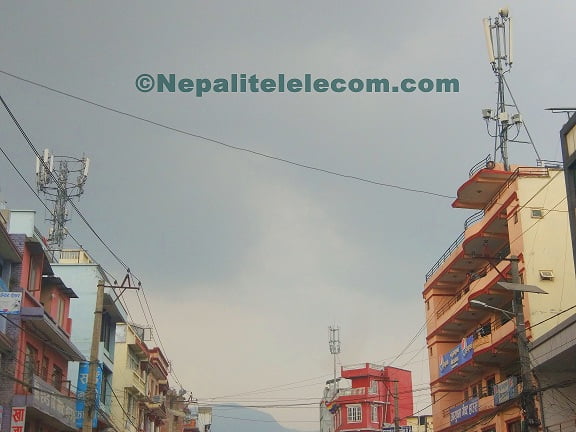Nepal government is going to assign Nepal Telecom with a responsibility to set up an infrastructure company and share its resources with other telecoms and ISPs in the country. This is part of the government’s long-sought-after policy that will bind all telecom companies and mandate them to share the infrastructures developed by a single company.
On Nepal Telecom’s 17th anniversary, Minister of Communication and Information Technology, Mr. Parbat Gurung reiterated the idea of a shared infrastructure for telecom service in the country to ensure better service. Now the government took it over to Nepal Telecom to establish an infrastructure company in a near future.
What is The Infrastructure Sharing All About?
For any telecom company and Internet Service Provider (ISP) to offer their services, they require physical equipment or infrastructures in that particular area. These include tower, fiber optics, land, buildings, power supply, BTS pole, generator, AC, battery, Earthing among many others. It is imperative that any company will first set up these in order to ensure service availability.
Additionally, there are two types of infrastructure sharing; active sharing and passive sharing. The first includes electronic infrastructures such as base stations, spectrum, antennas, etc while the latter involves non-electronic equipment such as fiber optics and towers.
Earlier, NTA planned to make infrastructure sharing mandatory for all the telecom companies but it never realized.

The major resource for sharing in Nepal will likely be towers and optical fiber in Nepal. Due to an ever-growing demand for 4G, Fiber internet in all places, all telcos want to steer fiber/tower and expand services nationwide. For this, sharing the same fiber/tower among all telcos enables prompt service expansion and of an affordable cost. While creating a business opportunity for incumbent operators.
With this new policy (if put in place), Nepal Telecom will not only set up an infrastructure sharing company but also will share the resources with other private operators. It will be mandatory that all the telecom and ISPs use the infrastructures developed by the company on rent.
The Policy Has Not pleased Everyone
Despite obvious advantages, the policy has not gone well with the private companies. Especially Internet Service Providers have taken this with a grain of salt and asked for more discussion before implementing the procedures.
Sudhir Parajuli, Internet Service Providers (ISPAN) chief, has called for a reconsideration of the policy. “There should be two infrastructure companies; government and private. It will spare private companies of Public Procurement Act entanglements and speed up the procedure.”, said the chief.
ISPAN members had discussed a proposal of an infrastructure company exclusive to private service providers in the past. But it never came to fruition. As of now, it looks as if they will be sharing the infrastructures with Nepal Telecom and other companies for their service expansion.
What Will Happen With the Infrastructure Sharing
With the implementation of this regulation, private companies will no longer establish their own resources but will share infrastructures with one another.
The companies that will share the infrastructures set up by Nepal Telecom infrastructures will pay a rental charge. Before doing so, Nepal Telecom will be buying the existing resources of the telecom and ISPs to relieve them of a huge financial setback.
Recommended Read: Challenges of Telecom Operators in Nepal
Conclusion
The infrastructure sharing is potentially a groundbreaking scheme in the country. While many companies have taken the developing situation with a grain of salt, it may bring a host of advantages for the ICT expansion in the country in the long run.
As telcos need to have huge infrastructures, sharing will be a cost-cutting measure for the companies. The policy will minimize redundant infrastructures that are not needed at all if shared. Furthermore, uniformity in services and a level playing field will help them achieve fair and healthy competition in the market. As a result, consumers can receive higher quality service at an affordable cost.
The talk of an infrastructure sharing regulation has been ongoing for years. But finally, it is taking a definitive shape now and has a great impact on the telecom industry. It has been reported that the minister is pursuing an ordinance to bring this policy into effect very soon. Find the long-awaited projects of NTA for telecommunication development.
What do you think of the infrastructure sharing regulation? Will it be fair for all telcos and ISPs to use shared infrastructure for their service expansion? Do you think it could be a set back to the incumbent telcos and ISPs? Or Else create a conducive environment for the telecom industry? Leave your opinions in the comment section below.













